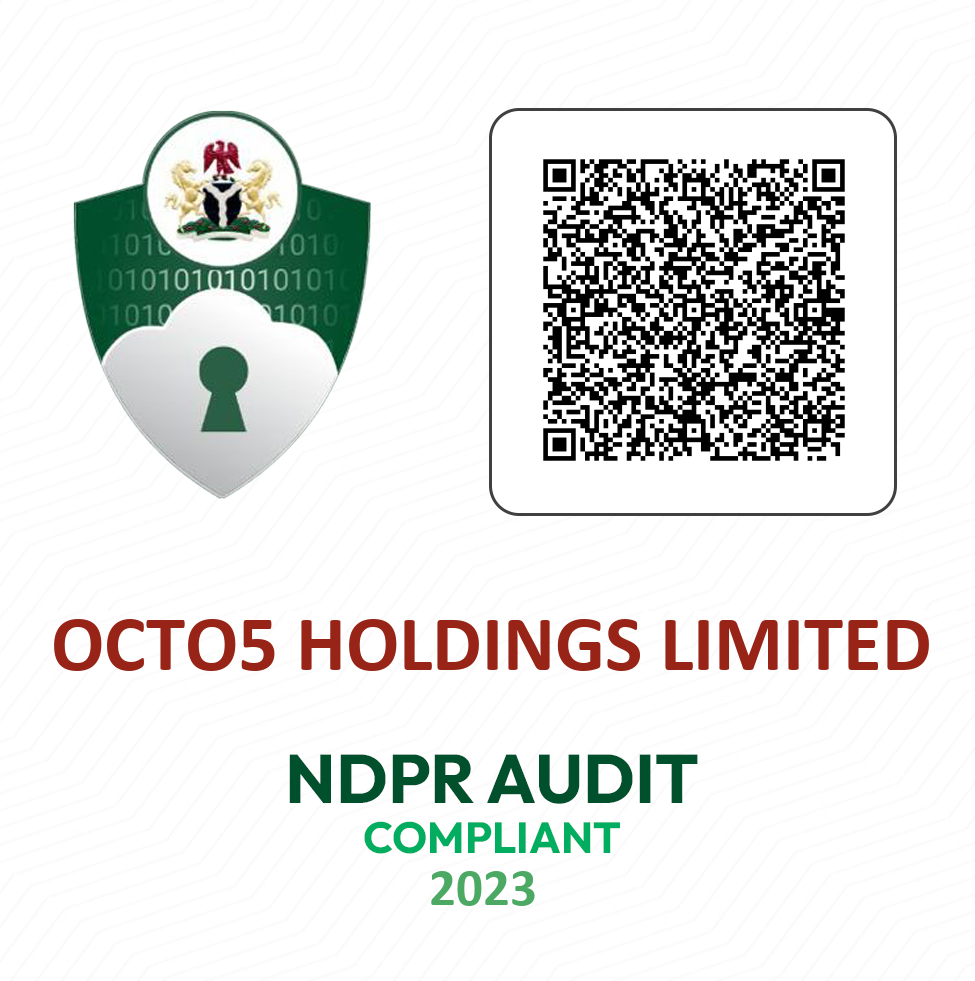
A proven fact is that Real Estate is the surest and best guarantee for preserving wealth, especially real estate that is purchased for investment or commercial purposes. However, while Real Estate is a proven tool for securing wealth and protecting capital against losses and depreciation, any poor choices made exact a harsh and unforgiving toll.
Many would-be investors have been burnt in a bid to acquire real estate on the cheap or relying on honor code rather than documentation to secure their assets. The true value of a REAL ESTATE ASSET is tied to the completeness of the documentation and its ability to serve as security collateral.
For prospective investors and homeowners, it is vital to understand the typical terms that govern real estate transactions especially in Nigeria.
For the purpose of this article, our primary focus would be property titling in Nigeria. As a starting point, please note that in Nigerian law there are three key elements – (1) POSSESSION is nine-tenths proof of ownership and (2) He who owns the land, owns whatever is built on it, lastly by virtue of the Land Use Act of 1979, the Government owns all land and we are all mere lease holders.
LEAESHOLD OR FREEHOLD:
All land in Nigeria is technically leaseholds. When you buy from community or family owned untitled land, what you are buying is a Customary Right of Occupancy and you are expected to apply and obtain a certificate of occupancy to convert it into a secured leasehold for ninety-nine (99) years.
All lands are measured and marked out with boundary beacons and represented by a drawing map called a SURVEY.
LAND SIZES:
In Nigeria, land is measured in plots using square meters; an acre consists of six (6) plots and an hectare consists of two and half acres or fifteen (15) plots. The typical Government standard plot in Nigeria is 18meters x 36 meters meaning 648 square meters which can accommodate a standard house with all setbacks and a small compound.
In summary, an Hectare is 10,000 square meters; an acre is 4,046 square meters and a standard plot is 648 square meters.
In the last twenty (20) years with the advent of private developers, we now have smaller sized and larger sized plots. The MOST IMPORTANT THING to note in your plot sizing is the setback requirements.
Under the planning laws of most States’ in Nigeria, you are obligated to develop a maximum of 50% of your plot area and you must allow three (3) meters setback on the sizes and six (6) meters from all roads immediately besides or in front of your plot.
SURVEY
The process by which boundaries are measured and land areas are determined; the on-site measurement of lot lines, dimensions, and positions of buildings on a lot, including the determination of any existing encroachments or easements. Surveyors are responsible for handling survey related issues and they are regulated by the office of the Surveyor-General of each State. A valid survey plan must contain the name of the owner of the land surveyed, the exact address or description of the land surveyed, the size/area of the land surveyed, the drawn-out portion of the land survey and mapped out on the survey plan document, the beacon numbers and coordinates. A valid survey MUST be signed and sealed by the Registered Surveyor, who drew or was responsible for drawing the survey plan and the date it was drawn up.
A valid survey will have something called a “reg” copy and this is the copy filed in the office of the Surveyor General of the State, where the land is located.
TITLING / NIGERIAN LAND USE ACT EFFECT:
As earlier stated, all titles to land are derived from customary rights of ownership HOWEVER with the Land Use Act of 1979, you must obtain a CERTIFICATE OF OCCUPANCY which is the official document issued by Government for Ninety-nine (99) years vesting initial ownership on the first applicant.
Typically, the first applicant acquires from a community or customary right owner. BEFORE paying any customary owner for land, YOU SHOULD DO A LAND SEARCH at the State Land Registry.
Because the Land Use Act of 1978 vested all lands in every State of the Federation under the control of the State Governors. State Government’s in turn typically recognize customary rights by granting what is called an Excision.
EXCISIONS: –
An Excision means the Government makes a law ceding and releasing portions of an expanse of land to customary owners, typically communities or land-owning families which enables that family sell to third parties. Such excisions must always be Gazetted.
Warning — there are lands that Government has clearly defined development plans around! In such cases, you will typically hear that the area is under acquisition.
When you buy such a land, you must apply to the Government for ratification and the Government is NOT obliged to approve your request.
As a rule of thumb, AVOID ANY LAND THAT IS UNDER GOVERNMENT ACQUISITION.
When you do a land search at the registry with the initial survey map, the State Surveyor General Office will often issue a letter confirming if the land is “free of Government Acquisition”
When land is free of government acquisition, converting a customary right into a deemed right of occupancy (certificate of occupancy for non-government land) is straight forward.
GAZETTE:
A Gazette is an Official State Record where all special government decisions or approvals or orders are detailed, and recorded. A Gazette carries the Logo of the State for example “LAGOS STATE OF NIGERIA OFFICIAL GAZETTE”. It will also include the Number, Volume, Page, Date, and the Location where it was signed into law. When it has to do with an excision, it will include the list of the Villages, Settlements, and parcels of land excised back to the named community. It will also include details of the Area(s) excised, the number of Acres or Hectares of land excised to the named communities; the boundaries, coordinates and beacons for the area of land excised to the named community.
WARNING: Anyone offering you an excised land without a gazette is selling you a gambling chip!
CERTIFICATE OF OCCUPANCY (C OF O)
A Certificate of Occupancy is the first official title certificate issued by State Governments in Nigeria to landowners and property owners as a certified and registered proof of ownership. This certificate also spells out what the land can be used for; residential, commercial, or mixed development. ALL Certificates of Occupancy (C of O) are valid for Ninety-nine (99) years. Unless revoked or voided for any reason, ONLY ONE Certificate of Occupancy can be issued on the same property.
All subsequent buyers simply have their rights noted on the registered copy of that Certificate of Occupancy and then apply for what is called a Governor’s Consent to their acquisition of interest in that same property.
GOVERNOR’S CONSENT
Governor’s Consent is an attestation stamped on every registered transfer of title confirming that ownership of the leasehold has been transferred to a third party. Governor’s consent is always issued for the unexpired term of the lease calculated from the date upon which the original Certificate of Occupancy was issued by the State.
Deed of Assignment / Deed of Sub-lease
A deed of assignment or deed of sub-lease refers to the legal document that records the transfer of ownership of a real estate property from one party to another. It affirms that the Seller has transferred all his rights, his title, his interest, and ownership of that land to the buyer. A Deed of Assignment or Deed of Sub Lease MUST be submitted to the Land’s registry to obtain Governor’s Consent and it is then registered / filed by the State Land Registry as a further interest in that property.
REMEMBER – having a registered title is primary evidence of ownership of the property; the second most potent proof is being in physical possession of the property.
Contract of Sale
This is a contract containing the complete terms of the agreement between a buyer and a seller for the sale of a particular parcel or parcels of real estate properties. It precedes due diligence and execution of a Deed between respective parties.
Lease
A contract between a landlord (the lessor) and a tenant (the lessee) transferring the right to exclusive possession and use of the landlord’s real property to the lessee for a specified period and a stated consideration (rent). Typically, in Nigeria, a lease serves a tenure of at least three years, whereas a tenancy is for a tenure of 2 years or less.
Power of Attorney
This represents a written instrument authorizing a person (the Attorney) to act on behalf of the Donor to the extent indicated in the instrument. It is important to ensure that the Power-of-Attorney (P.O.A) seeking to transfer title or to be used to transfer title is registered meaning Governor’s consent is obtained.
Title Search
A title company’s review of the deed and the (potential) claims upon it. This is part of the due diligence a prospective buyer needs to undertake to verify the authenticity of the title to the land. This is usually conducted at the state lands registry. (E.g., Alausa in Lagos State)
In subsequent posts, we will explore the planning approval procedures using Lagos as a case study.
KEY TAKEWAYS:
Title to land is first a customary title then a certificate of occupancy then a registered deed with Governor’s consent.
Anyone selling you land under acquisition must provide you a proof of excision
If you are buying a community property that is not under acquisition; ensure that the family leaders sell collectively; ensure that they all sign on record to the sale and ensure that you have audio and pictorial records of the sale; once completed, ENSURE YOU FILE AND OBTAIN YOUR CERTIFICATE OF OCCUPANCY.


